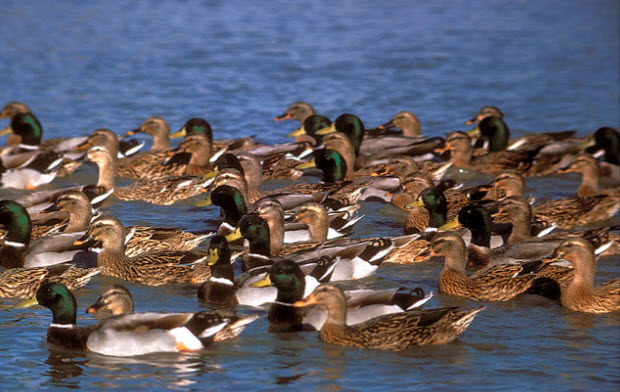Texas Parks and Wildlife Department (TWPD) today said Highly Pathogenic Avian Influenza (HPAI) is circulating among wild birds in Texas as waterbirds and waterfowl are on their wintering grounds.
The transmission risk of avian influenza from infected birds to people remains low, but the public should take basic protective measures if contact with wild animals cannot be avoided.
The National Veterinary Services Laboratories (NVSL) confirmed the presence of HPAI, also called H5N1, in multiple locations around the state.
Most recent detections are in Wharton, Galveston and Harris counties, TPWD said in a statement headlined “Several Mortality Events in Texas Birds.”
HPAI, or bird flu, is a highly contagious virus that transmits easily among wild and domestic birds. The virus can spread directly between animals and indirectly through environmental contamination.
The public is asked to “interrupt” HPAI transmission by limiting all unnecessary contact with wild birds.
Bird feeders and water sources should be cleaned at least every two weeks with a solution of one part bleach to nine parts water. Water in birdbaths should be changed every few days. Regularly remove wet feed and seed from feed and water sources.
Because of the ease of transmission, wildlife rehabilitators are advised to remain cautious when intaking wild animals with clinical signs consistent with HPAI, and to consider quarantining animals to limit the potential for HPAI exposure to other animals within the facility.
Game bird hunters should take these precautions:
- Dispose of carcasses properly.
- Wear gloves when processing birds.
- Avoid consuming or processing any sick bird.
- Clean and disinfect tools between carcasses.
- Cook meat to proper temperatures.
More information about HPAI in humans is available from the Texas Department of State Health Services (DSHS).
To report a wild animal with signs consistent with HPAI contact your local TPWD biologist.





Wouldn’t in be helpful to have posted the information ‘clinical signs consistent with HPAI’ within this alert?
TPWD did not provide this information and although clinical signs consistent with HPAI can easily be Googled, we defer to the county’s Public Health Department for this kind of guidance.